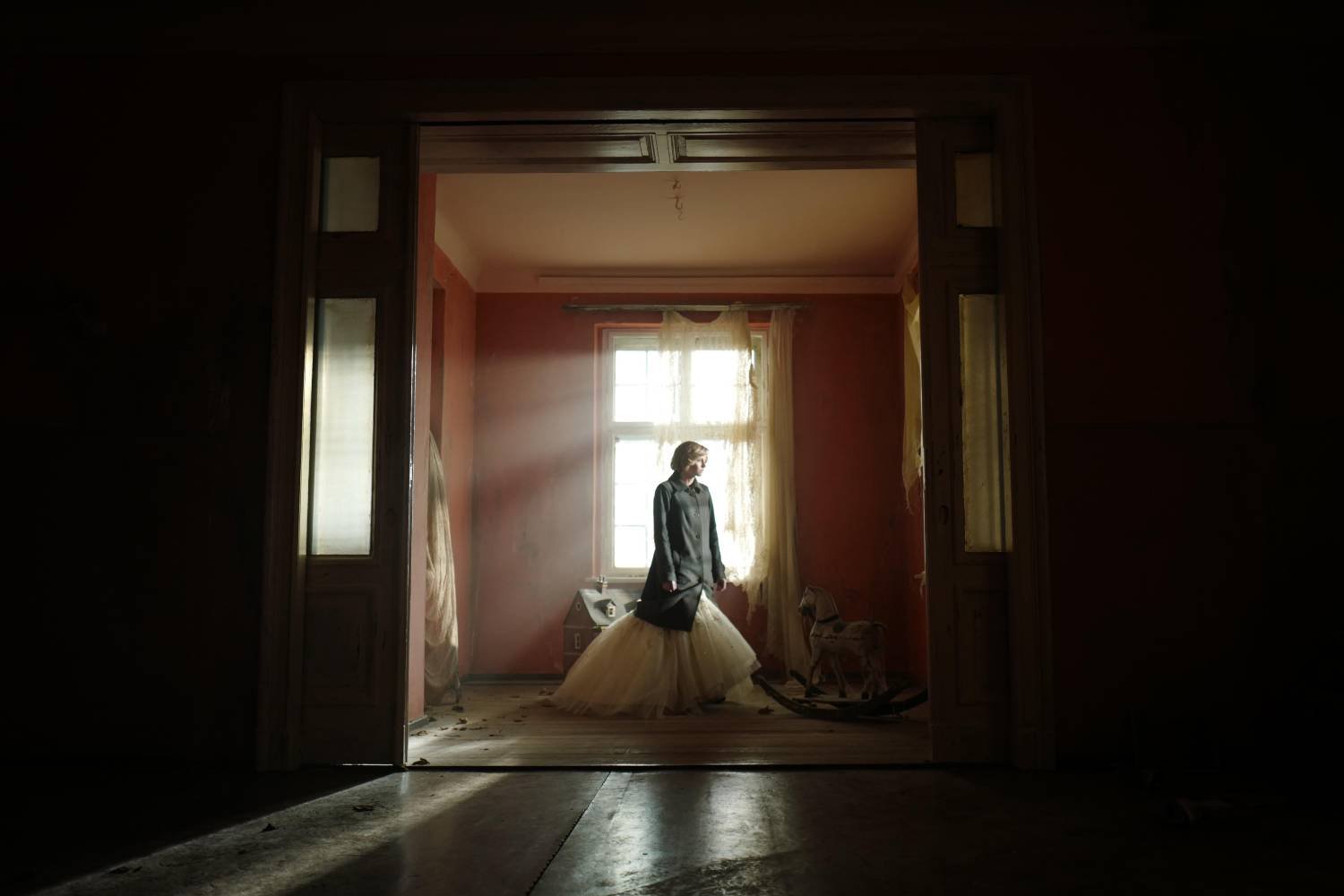Film Review: Spencer
Kristen Stewart gives the performance of the year in Pablo Larraín’s Spencer
Kristen Stewart - in a wrenching, career-best performance - disappears into the role of Diana, Princess of Wales in Pablo Larraín’s Spencer, a haunting gauntlet of psychological horror in the guise of a biopic. Forgoing historical specificity in favor of evocation and the hazy purgatory between dream and nightmare, Spencer rebukes the royal mythos with a portrait of an unraveling spirit. Minor spoilers ahead…
Diana, Princess of Wales, last graced the silver screen in Oliver Hirschbiegel’s artlessly soapy and savaged Diana back in 2013. Starring a floofy Naomi Watts with dialogue pulled straight from the tattlers that birthed its narrative, Diana played fast and loose with its facts. Pablo Larraín’s latest take on the beleaguered princess - Spencer - doesn’t exactly aim for accuracy either, but it swings in the complete opposite direction in terms of its art. The last thing I expected was a direct appeal to my horror-obsessed sensibilities, but through the lens of psychological, claustrophobic terror, Spencer extrapolates a Christmas from hell and captures Diana’s isolation wrought by a loveless marriage and a smothering royal station. Powered by a singular, searing performance by Kristen Stewart, Spencer aims not for imitation or adherence to history, but persuasive evocation.
Like Larraín’s Neruda and Jackie before it, Spencer captures its subject in a sliver of pivotal upheaval. Set across a span of three grueling days in 1991 at the Queen’s sprawling Sandringham estate - Christmas Eve, Christmas Day, and Boxing Day - the film has Diana grapple with her fraught roles as doting mother and trapped royal, her husband Charles (a frigid Jack Farthing) in the midst of his affair with Camilla Parker Bowles, her own family’s history, and her eating disorder. Wisely, Spencer avoids yet another retread of the famed princess’s life with improvisational verve, bristling against the romance and myth-making of her typical depictions.
“Like [Pablo] Larraín’s Neruda and Jackie before it, Spencer captures its subject in a sliver of pivotal upheaval.”
While the figures surrounding Diana within Spencer - flitting in and out - range from cruel to cold to empathic, Larraín wrings the most antagonism from the circumstances of rigid tradition and suffocating duty. From its very first frames, overbearing archaism permeates the film’s hazy atmosphere, and an especially potent throughline is drawn between Diana’s disintegration and - as screenwriter Steven Knight would call it - the “weaponization of food.” The opening scene finds a convoy of jeeps unload a procession of what looks like munition crates onto the estate grounds, but it turns out to be the meals for the day. The kitchen staff, led by Royal Head Chef Darren McGrady (a surprisingly tender Sean Harris), unpacks ingredients with military precision as an ominous sign floats above the staff’s heads: “Keep noise to a minimum. They can hear you.” The meals in Spencer aren’t portrayed as lavish feasts or displays of decadence, they’re metaphor for the crown’s oppressive traditions. When Stewart’s Diana arrives, it’s made known that all guests are weighed upon entrance as a benchmark, lest they leave the holidays unsated; to the crown, weight gained equals duty fulfilled.
Kristen Stewart - whose less-lauded work can sometimes make you wonder if she’s playing a role or just herself - is note-perfect as Diana, Princess of Wales. Completely disappearing into character, Stewart deftly evokes the shaky dichotomy of a princess in private and in public, and the toll such a tightrope exacts. Unnecessary, but as a surprising bonus, she nails Diana’s upper crust accent, a wispy breathlessness that millions are familiar with. The film, which spends much of its runtime with Diana and only Diana, simply demands Stewart’s blistering performance, and she’s more than up to task; Larraín resists the temptation to mingle Stewart’s Diana with the other royals (she shares a single, powerful interaction with Charles in a billiards hall), instead relegating them to the periphery as specters of a gilded cage, boogeymen to ambush and gaslight.
“Completely disappearing into character, [Kristen] Stewart deftly evokes the shaky dichotomy of a princess in private and in public, and the toll such a tightrope exacts.”
At its core, Spencer is a horror movie. Jonny Greenwood’s exquisite score mutates from classical royal fanfare into hauntingly discordant jazz, accompanying Diana’s deteriorating mental state, while Claire Mathon’s gorgeously hazy camerawork - all on 16mm and 35mm film - captures the space between a dream and a nightmare. Stewart’s Diana doesn’t long for romance or her prince; instead, she dreams of a ghostly Anne Boleyn, whose own husband - Henry VIII - had her beheaded so he could marry Jane Seymour. The palace staffers have sewn the curtains shut to keep out intrusive eyes, but also to stifle Diana’s own curiosity, and her fictionalized, trusted confidante and Royal Dresser, Maggie (Sally Hawkins), is exiled back to London. True moments of tenderness shine through in powerful, sadness-tinged interactions with her sons, William and Harry (Jack Nielen, Freddie Spry), but it isn’t before long that she’s back in the throes of freefall, rending her own flesh with a pair of wire-cutters. It sounds like a lot, but Spencer never descends into farce, even when its messaging gets a little long in the tooth.
Spencer marinates in the excruciating pain of not fitting in, deconstructing one of our most infallible icons down into her human core. Cutting against the grain of a towering institution that just won’t have her as she is, Larraín’s psychological gauntlet acts less as an invective against the Royal Family, and more as a tragedy of a fizzled wish. It’s also Larraín at his most open and playful; never once hinting at Diana’s violent demise, Spencer’s final act is a doozy, straddling the line between treacly revisionism and hopeful rewrite that’s all confidence. The opening moments describe the film as “a fable from a true story,” but it’s Kristen Stewart’s miraculous performance that transforms allegory into a tale of defiance.













